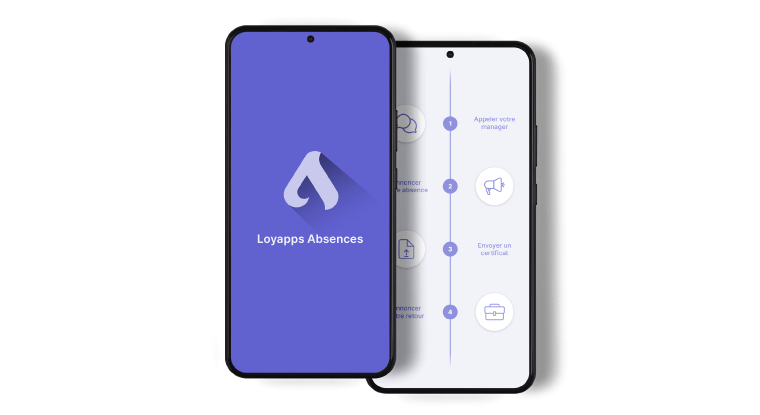
Leave and disability: a guide for employers and employees
Can you go on vacation if you’re unable to work? What are the rights, risks and responsibilities for employers and employees? This article, written by our partner CJE, Avocats, Conseillers d’Entreprises, guides you through the legal rules, best practices and grey areas to be clarified in the contract.
Any employer may be faced with the situation of employees on vacation who fall ill or have an accident and provide a medical certificate stating that they are unable to work. A further question arises: is it possible for an employee on sick leave to go on vacation?
The employer is faced with a number of questions:
- Can an employee take vacation while unable to work?
- What is the role of the employee’s doctor?
- What information can and should the medical certificate contain?
- Can the loss-of-earnings insurer prohibit a vacation period during incapacity for work?
- Can an employer prohibit a vacation period during an incapacity to work?
- Depression: a special case?
- What are the risks of an employee who is unable to work and goes on vacation without prior authorisation?
- End of employment: a special case?
- How do I deal with partial disability?
The principle of incapacity for work does not totally preclude the taking of vacations. It is possible for an employee who is unable to work to take a vacation, but only under certain conditions.
What conditions must be met?
First of all, it should be pointed out that the principle of incapacity to work does not totally preclude taking vacations.
The employee’s doctor must certify that the patient’s state of health allows him/her to go on vacation and travel, without aggravating the condition or contradicting the reason for incapacity for work.
The particularity of this medical certificate is that it does not attest to an inability to work, but rather to an ability to benefit from the advantages associated with leave. Thus, for medical reasons, it is up to the doctor to limit or supervise the right to go on vacation, particularly with regard to..:
- choice of location
- authorized activities
The loss-of-earnings insurer’s general terms and conditions of insurance may contain rules on taking vacation during incapacity for work. It is therefore expressly recommended that you refer to them.
As part of its obligation to provide information, the employer must ensure that the employee is aware of the conditions imposed by the loss-of-earnings insurer.
It would appear difficult for the employer to refuse vacation during a period of incapacity, provided that the employee submits a medical certificate meeting the criteria set out in point 2, and that the loss-of-earnings health insurance company also agrees.
However, partial incapacity is expressly reserved for cases where the employer has an objective need for the employee’s residual capacity to work.
For a vacation to be possible, in addition to the above, the medical certificate must expressly state that the trip is not incompatible with the employee’s state of health.
Risks can be identified at three levels:
1.working relationships
An employee who goes on vacation without first seeking the employer’s permission, despite being warned to do so, is in breach of her duty of loyalty and is liable to immediate dismissal for just cause if her absence lasts more than a few days.
The unilateral taking of vacations by the employee may thus constitute just cause for immediate dismissal (TF 4A_280/2017). The notion of just cause is a legal concept freely examined by the judge, who assesses this breach of contract in the light of a number of criteria, in particular:
- duration of absence
- its impact on company organization and activity
- the existence of any previous warning for the same reason
- refusal by the employer to allow the employee to take vacation time
- a prior threat of sanctions by the employer in the event of insubordination (Commentaire du contrat de travail Jean-Philippe Dunand, Pascal Mahon, 2nd ed.)
2.compensation
The unilateral taking of vacations by the employee may constitute grounds for suspension of entitlement to daily allowances or payment of salary.
3.compensation for damages
In the event of unjustified unilateral vacation taking, the employee is liable for the damage caused under art. 321eCO, and must compensate for any consequential damage caused by his or her absence (e.g. overtime worked by other employees, higher remuneration demanded by a temporary replacement, claims from a customer delivered late as a result of the employee’s absence, etc.).
The above rules also apply during the notice period. They may, however, be applied less severely if it is the employer who has terminated the Contrat than if it is the employee.
To answer this question, we have to ask ourselves whether it’s possible to be “on partial vacation”. We don’t think it’s possible, so if vacation time is granted, the whole time will be vacation.
In conclusion
Certain aspects of the issues raised are governed by the law, case law and general terms and conditions of insurance. However, there are still some grey areas.
In order to limit the risk, the employer will use the Contrat de travail to settle the grey areas that seem most at risk.
Do you have any questions? Contact our partner CJE, Lawyers, Business Consultants
Discover all our our legal news here

















